Sam Walton’s journey from his modest beginnings to establishing Walmart, one of the world’s largest retail giants, is a story that continues to inspire.
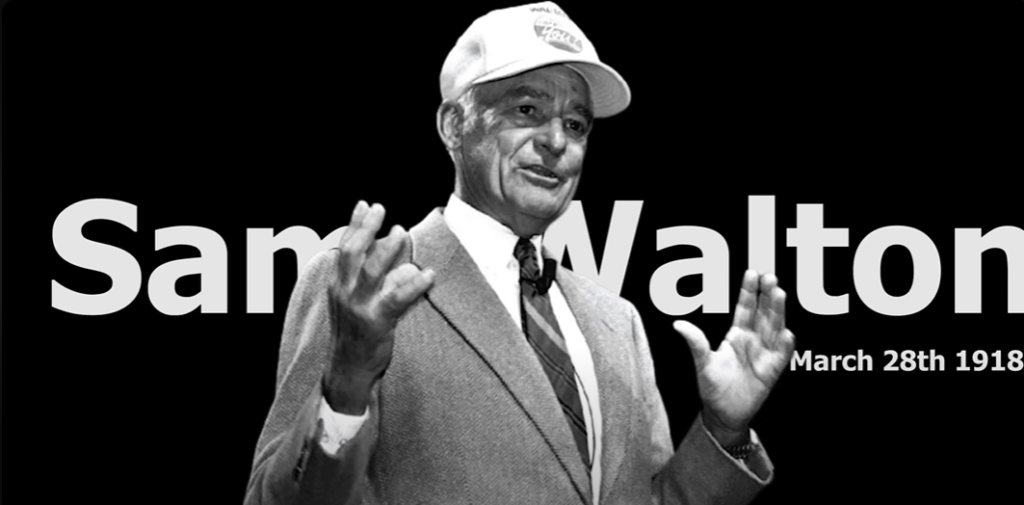
His life exemplifies the power of perseverance, creativity, and an unwavering focus on delivering value to customers. Walton’s legacy is not just the empire he built, but the fundamental changes he brought to the retail industry, which continue to shape how businesses operate today.
Humble Beginnings: Lessons in Resilience and Hard Work
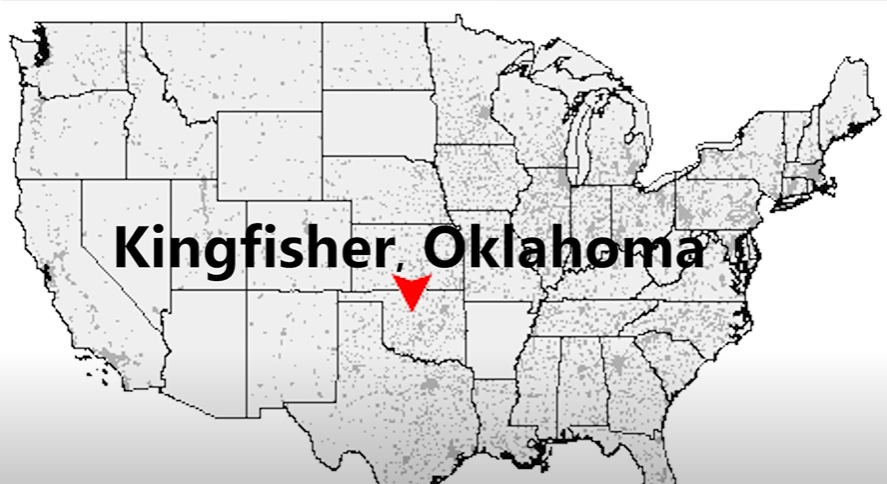
Sam Walton was born on March 28, 1918, in Kingfisher, Oklahoma, into a family that struggled financially. His father, Thomas Walton, was a farmer who could barely make ends meet, forcing the family to move frequently in search of better opportunities. These early experiences of financial instability had a profound impact on young Sam, who quickly learned the value of hard work and resourcefulness.
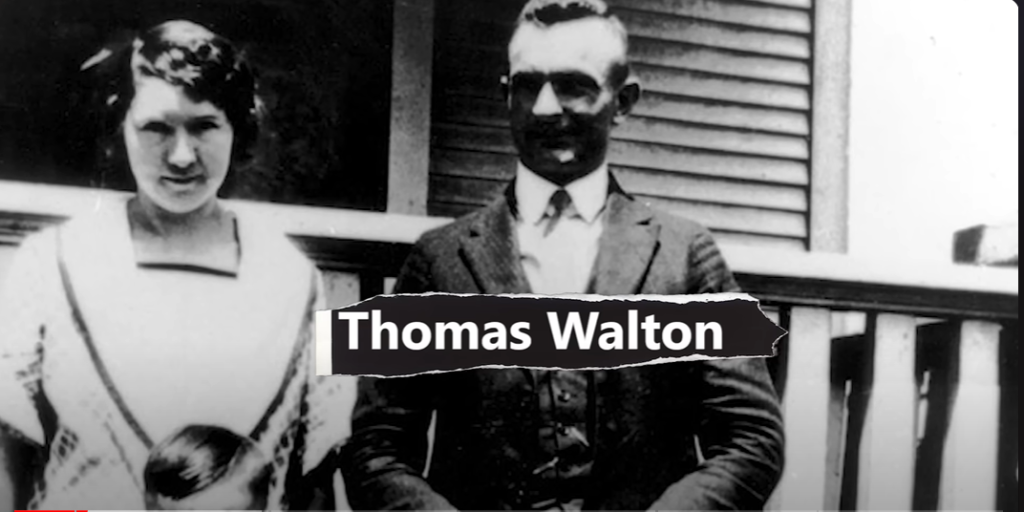
As a teenager, Sam took on various jobs to help support his family. From delivering newspapers and milking cows to selling magazine subscriptions, he developed a strong work ethic and a keen understanding of the importance of customer service. His father’s knack for making a small profit in every transaction and his mother’s success in running a milk business further influenced his entrepreneurial spirit. Sam observed how small profits could accumulate into significant earnings, a lesson that would later become a cornerstone of his business philosophy.
Despite the economic challenges, Sam was an active and ambitious student. He excelled in sports, joined the Boy Scouts, and took on leadership roles that kept him engaged and focused. His involvement in these activities not only provided him with an escape from the difficulties at home but also honed his leadership and teamwork skills.
The First Steps into the Retail World
After graduating from David H. Hickman High School in 1935, Sam Walton attended the University of Missouri, where he studied economics. While in college, he continued to work various jobs to support himself, including waiting tables and delivering newspapers. These experiences further shaped his understanding of business operations and customer relations.
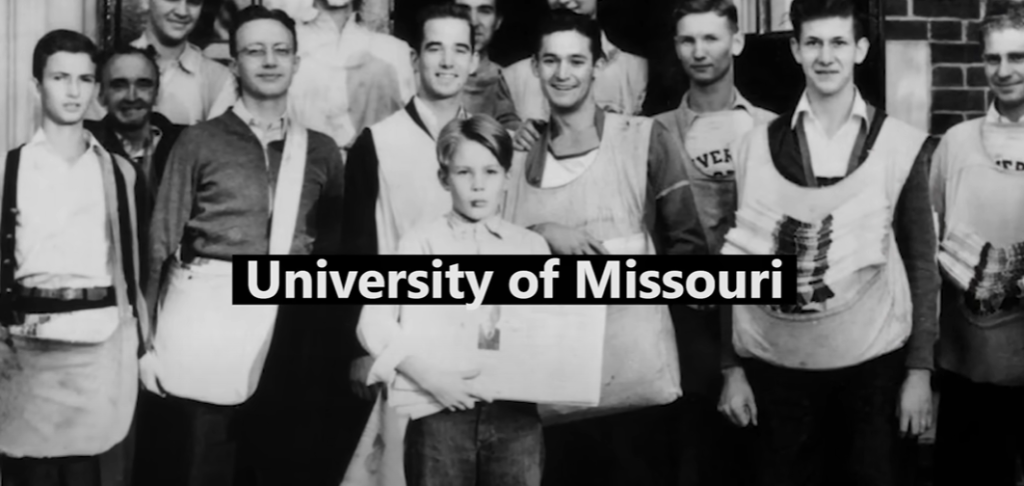
In 1940, upon graduating from college, Sam landed his first job in the retail industry as a sales trainee at JCPenney in Des Moines, Iowa. At the time, JCPenney was just a small chain of stores, and Sam was eager to prove himself. However, his time at JCPenney was challenging. His boss considered him one of the worst employees because of his poor bookkeeping skills—Sam was more focused on serving customers quickly than on meticulously filling out paperwork. Despite these challenges, his natural salesmanship shone through, earning him recognition and an additional $25 a month in sales commissions.
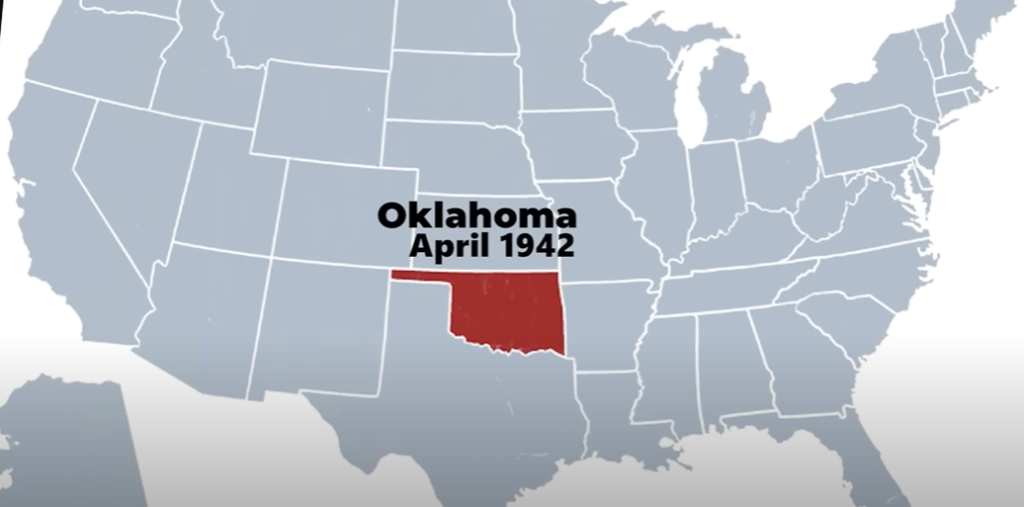
However, Sam’s retail career at JCPenney was cut short by World War II. In 1942, he left the job to join the U.S. Army, where he quickly rose through the ranks due to his leadership abilities. Sam was stationed in Oklahoma, where he met his future wife, Helen Robson. The two married on Valentine’s Day in 1943, and after the war ended in 1945, they returned to civilian life with a desire to build something of their own.

The Birth of an Entrepreneur: Walton’s First Store
With a $20,000 loan from his father-in-law and $5,000 of his savings, Sam Walton purchased a Ben Franklin variety store in Newport, Arkansas, in 1945. This was his first real venture into the world of business ownership, and it was fraught with challenges. The store was struggling, and the rent was high—far higher than what other variety stores were paying. Many would have been discouraged by these obstacles, but not Sam Walton.
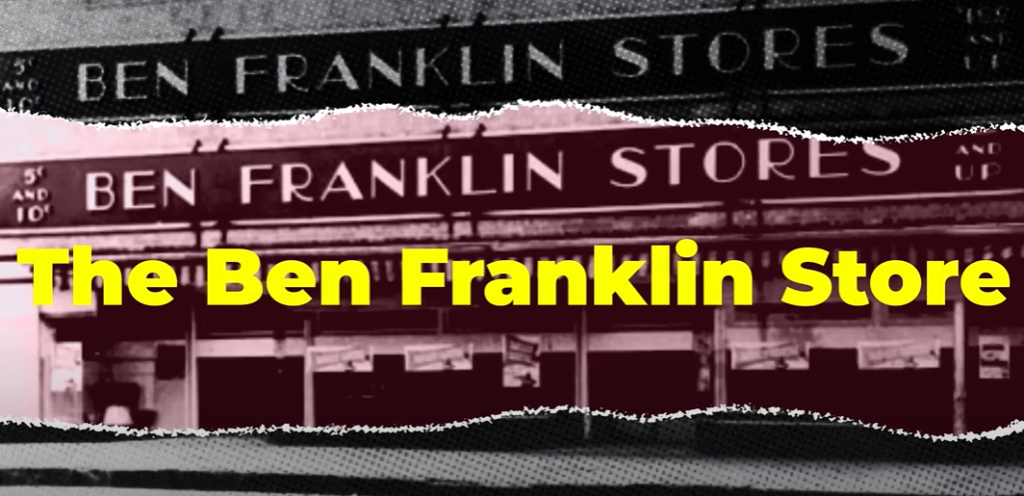
Sam’s strategy was simple yet revolutionary: he focused on offering goods at lower prices than his competitors by sourcing cheaper merchandise. Instead of relying on high-profit margins, he aimed to increase sales volume. This approach was risky, especially in a small town where customers had limited disposable income, but it paid off. Sam’s innovative ideas, such as offering goods at a lower price than other stores and introducing Saturday sidewalk sales with ice cream machines and popcorn stands, drew in customers and increased sales.

Within just a few years, Sam had transformed the struggling Ben Franklin store into a highly successful business. By his third year, he had increased sales by 25%, bringing in $175,000, and had repaid the $20,000 loan from his father-in-law. Sam’s success in Newport was not just due to his hard work and innovative strategies but also to his relentless focus on customer satisfaction. He understood that making life easier for his customers would naturally lead to increased sales.
A Setback Leads to a New Beginning
Despite his success, Sam Walton’s tenure in Newport came to an abrupt end due to a costly oversight in his lease agreement. When Sam purchased the store, he failed to include a renewal clause in the lease. This oversight allowed the landlord to reclaim the property, effectively forcing Sam out of the business he had worked so hard to build. It was a devastating blow, both personally and professionally.
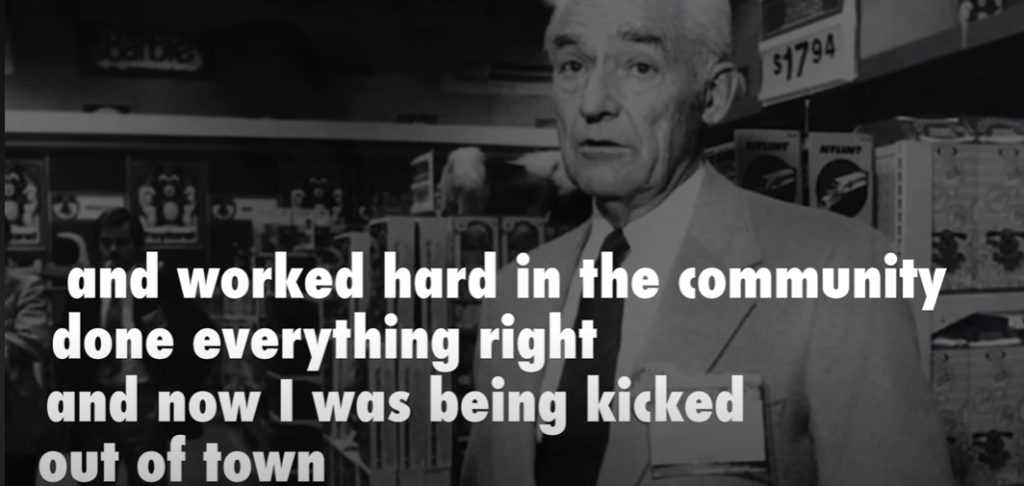
Reflecting on this period, Sam later described it as one of the lowest points in his life. He had invested everything—financially and emotionally—into the store and the community of Newport. The thought of starting over was daunting, but Sam was determined not to let this setback define him. He resolved to learn from his mistakes and rebuild his business better than ever before.
Bentonville: The Foundation of Walmart
In 1950, Sam Walton moved to Bentonville, Arkansas, where he opened his second store, Walton’s Five and Dime. This time, Sam was meticulous about the lease, securing a 99-year agreement to avoid the mistakes of the past. The people of Bentonville were initially skeptical, with many predicting that his new store wouldn’t last more than a few months. But Sam proved them wrong, leveraging the lessons he had learned in Newport to build a thriving business.
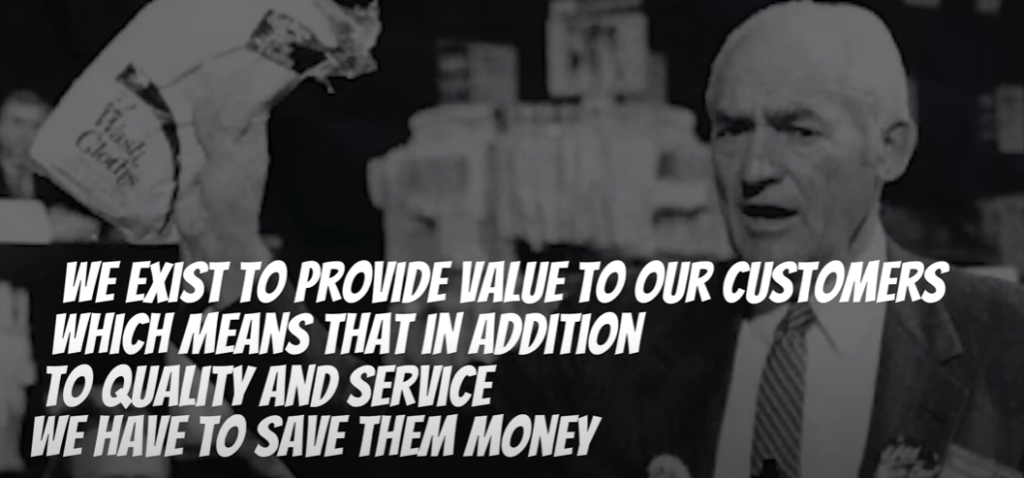
Walton’s Five and Dime was a pioneer in several aspects of retailing. Sam was among the first to introduce the concept of self-service, where customers could pick their goods and pay at the entrance. This innovation not only reduced labor costs but also enhanced the shopping experience, leading to increased customer satisfaction and higher sales.
Sam continued to experiment with new ideas, always with the goal of reducing costs and passing the savings on to his customers. He understood that in the competitive world of retail, success depended not just on the quality of goods but also on their affordability. His relentless focus on low prices began to set him apart from his competitors.
The Birth of Walmart: A Revolutionary Retail Model
The 1950s were a time of economic prosperity in America, and Sam Walton seized the opportunity to expand his business. By the end of the decade, he owned 15 stores, which he had acquired through a combination of borrowed money and profits. But despite this success, Sam felt that his business model still had untapped potential. He wanted to create something bigger—something that would revolutionize the retail industry.
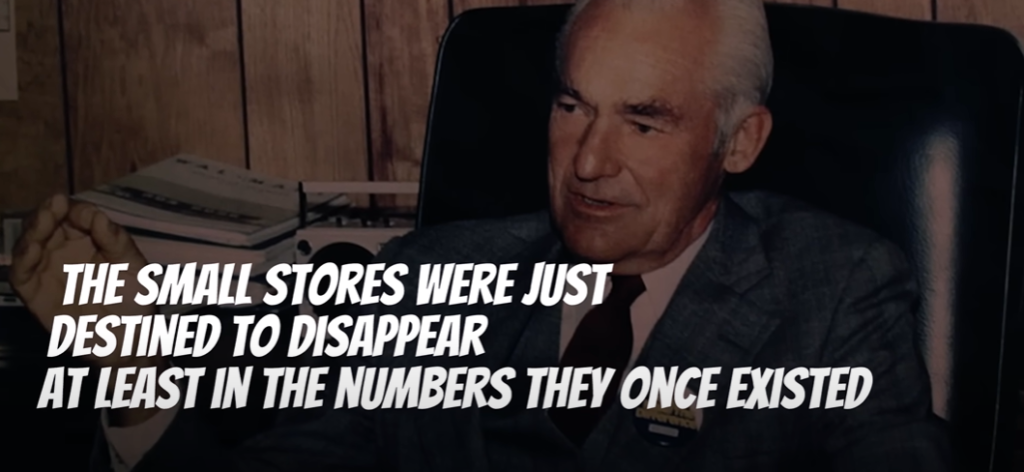
In 1962, Sam Walton took the bold step of opening the first Walmart store in Rogers, Arkansas. The concept behind Walmart was simple yet groundbreaking: offer a wide range of products at consistently low prices, and locate the stores in small towns where people had limited access to affordable goods. While discount stores were not a new concept, they were typically small, located in big cities, and only offered discounts on selected items. Sam’s idea was to offer discounts on everything in his store, every day.
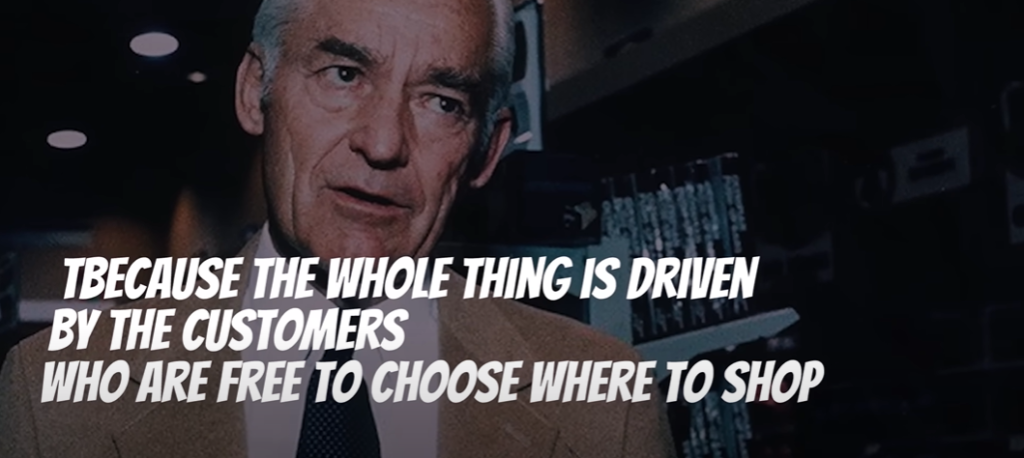
The first Walmart was a resounding success. Customers flocked to the store, thrilled that they no longer had to travel to the city to get good deals. The sales at Walmart soared, and Sam continued to refine and perfect his business model. He introduced innovations like replacing wooden shelves with cheaper, more durable metal ones, and extending store hours to attract more customers. Walmart’s growth was rapid and unprecedented, and by the end of the 1960s, Sam Walton had opened multiple Walmart stores across Arkansas and neighboring states.
Rapid Expansion and Innovations
The early 1970s marked a period of explosive growth for Walmart. In 1970, Sam took the company public, raising $5 million in an initial public offering (IPO). This move allowed him to pay off debts, repay loans from friends, and fund further expansion. The IPO was also a pivotal moment in Walmart’s history, as it provided the capital needed to implement Sam’s ambitious plans for nationwide expansion.
Sam Walton’s innovative approach to retail didn’t stop at low prices. He realized that to sustain Walmart’s growth, he needed to streamline operations and reduce costs even further. One of his key strategies was to establish a network of warehouses close to his stores, which allowed for efficient distribution and one-day delivery of goods. This logistical advantage gave Walmart a significant edge over its competitors, who often struggled with supply chain inefficiencies.
Another groundbreaking move was Sam’s decision to buy products directly from manufacturers rather than through wholesalers. This not only cut costs but also allowed Walmart to pass on even more savings to its customers. Additionally, Sam was a pioneer in employee engagement. He believed in sharing the company’s success with his associates, offering them stock options and bonuses. This created a strong sense of ownership and loyalty among employees, which contributed to Walmart’s continued success.
Walmart: A Retail Powerhouse
he introduction of Sam’s Wholesale Club in 1983 was another masterstroke by Sam Walton. He recognized the need for a store that could cater specifically to small business owners, offering them the opportunity to buy in bulk at discounted prices. This concept was a natural extension of Walmart’s philosophy of low prices and high volume, but it was tailored to a different segment of the market. The success of Sam’s Club further solidified Walmart’s dominance in the retail sector.
By the mid-1980s, Walmart had firmly established itself as a retail powerhouse, with stores spreading across the United States. Sam Walton’s approach to business was not just about expanding the number of stores but also about continually innovating to improve efficiency and customer experience. He was one of the first retailers to invest heavily in computerization, introducing a state-of-the-art inventory management system that allowed Walmart to keep track of sales in real-time. This system enabled the company to manage its supply chain more effectively, ensuring that popular items were always in stock and reducing the need for costly overstock.
In addition to technological innovations, Walton also focused on building a strong company culture. He maintained an open-door policy, encouraging employees at all levels to share their ideas and feedback. Walton was known for his down-to-earth management style, often visiting stores unannounced and chatting with employees to understand their challenges. He believed that the success of Walmart depended on the commitment and dedication of its associates, and he worked tirelessly to foster a sense of ownership and pride within the company.
Global Expansion: Walmart Goes International
Having conquered the U.S. retail market, Sam Walton set his sights on international expansion. The 1990s marked the beginning of Walmart’s global journey, as the company opened its first international store in Mexico in 1991. This was followed by rapid expansion into other countries, including Canada, Brazil, China, and the United Kingdom. Walmart’s entry into international markets was not without challenges, as the company had to adapt its business model to suit different cultural and economic environments. However, the core principles of offering low prices and excellent customer service remained unchanged.
Walmart’s international expansion was driven by a combination of organic growth and strategic acquisitions. The company acquired existing retail chains in several countries, rebranding them under the Walmart name and integrating them into its global operations. By the end of the 1990s, Walmart had become the world’s largest retailer, with a presence in multiple countries and a reputation for innovation and excellence.
Legacy and Impact: Changing the Retail Landscape
Sam Walton’s impact on the retail industry is immeasurable. He revolutionized the way businesses operate, introducing concepts and practices that have since become industry standards. His emphasis on cost control, efficient supply chain management, and customer satisfaction transformed Walmart into a retail giant and set the stage for the rise of other big-box retailers.
Walmart’s success also had a profound effect on the broader economy. The company’s relentless focus on low prices forced competitors to adopt similar strategies, leading to a shift in the retail landscape. Small, independent stores struggled to compete with Walmart’s scale and efficiency, leading to the consolidation of the retail industry. While this consolidation created challenges for smaller businesses, it also resulted in lower prices and greater accessibility to goods for consumers, particularly in rural areas where Walmart was often the only major retailer.
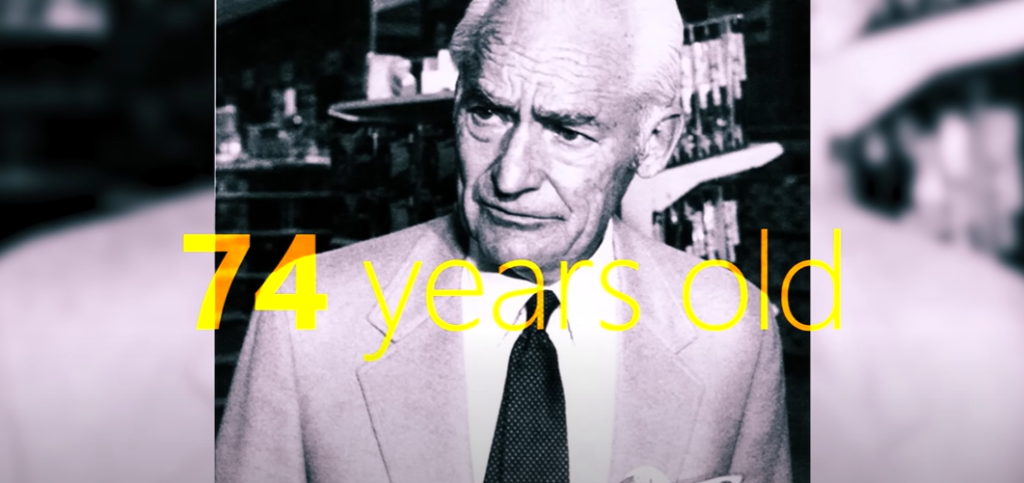
Sam Walton’s legacy extends beyond Walmart’s financial success. He was a pioneer in employee relations, advocating for profit-sharing and stock ownership programs long before they became common in corporate America. Walton’s belief in empowering employees to share in the company’s success helped to create a loyal and motivated workforce, which was crucial to Walmart’s growth.
In addition to his contributions to retail, Walton was also a philanthropist. He and his family donated millions of dollars to various causes, including education, healthcare, and community development. The Walton Family Foundation, established in 1987, continues to support initiatives that align with Sam Walton’s values of giving back to the community and improving quality of life.
The Walton Legacy: Beyond Sam Walton
Sam Walton passed away on April 5, 1992, but his legacy lives on through Walmart and the Walton family. Under the leadership of his son, Rob Walton, and subsequent CEOs, Walmart continued to grow and evolve, adapting to changes in the retail environment and embracing new technologies. The company expanded its e-commerce operations, launched the Walmart Supercenter concept, and continued its international growth.

Today, Walmart remains one of the most successful and influential companies in the world, with thousands of stores across multiple continents and a global workforce of millions. The principles that Sam Walton instilled in the company—low prices, customer focus, and innovation—continue to guide its operations. Walmart’s success story is a testament to the power of vision, hard work, and a relentless commitment to delivering value to customers.
Conclusion: A Visionary Who Changed the World
Sam Walton’s journey from a poor farmer’s son to the founder of the world’s largest retail empire is a story of determination, innovation, and an unwavering belief in the American dream. He was a visionary who saw opportunities where others saw obstacles, and his ability to turn a small-town variety store into a global retail giant is a remarkable achievement.
Walton’s impact on the retail industry and the global economy is undeniable. He transformed the way businesses operate, introduced new standards of efficiency and customer service, and created a company that continues to thrive long after his passing. Sam Walton’s legacy is not just Walmart but the millions of lives he touched through his business, his philanthropy, and his example of what is possible when one is driven by a clear vision and a strong work ethic.
Sam Walton remains an enduring symbol of entrepreneurship and innovation, a man who truly changed the world of retail. His story is a reminder that no matter where you start, with hard work, creativity, and a focus on serving others, you can achieve greatness.
FAQ
Which Walton started Walmart?
Sam Walton, the founder, started Walmart in 1962. He transformed his small-town store into the world’s largest retail empire through innovative business practices and a focus on low prices.
Is Sam Walton still alive?
No, Sam Walton passed away on April 5, 1992, at the age of 74. At the time of his death, Walmart was generating over $104 billion in annual revenue.
Why is Sam Walton famous?
Sam Walton is famous for founding Walmart and revolutionizing the retail industry. His emphasis on providing value to customers through low prices and his innovative business strategies helped Walmart become the world’s largest retailer.
What was Sam Walton’s success story?
Sam Walton’s success story began as a small-town store owner who, despite many challenges, built Walmart into a global retail giant. His focus on customer satisfaction, low prices, and innovative retail practices drove the growth and success of the company.









